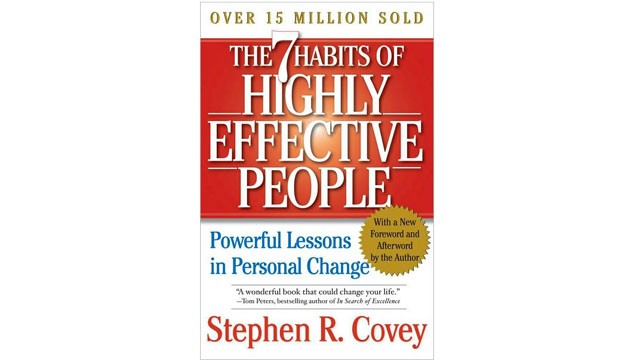 Todd Cherches | Comments Off |
Todd Cherches | Comments Off | Entries in Time Management (7)
Hey, Get Out From Under That Desk...with the Passion/Skill Matrix
 Tuesday, November 27, 2012 at 6:02PM
Tuesday, November 27, 2012 at 6:02PM
“People do best, what they like best to do.”
That’s an old adage by Frederick W. Taylor, the original management guru. Seems like common sense, doesn’t it? And yet, so many people hate their jobs.
So why is that?
Well, think about your hobbies. You know, the things you do for fun. Whatever it is, whether it’s playing a sport, a musical instrument, practicing a craft, or whatever, you probably do it for at least one of the following two reasons: you’re good at it and/or you enjoy it. Otherwise, why do it?
If you love doing something, let’s say, playing the guitar – even if you’re not very good at it – you’re going to pick it up and fiddle around with it, spending your spare time practicing, and watching and listening to others play, all in the hope of getting better. Even if you’re not that great and know you’re probably never going to play in a band, you still do it because it’s fun.
Similarly, if you’re good at something, even if it’s balancing your checkbook, you may not love doing it, but because you’re skilled in math and it comes quick-and-easy to you, you don’t really mind doing it.
So, what about something that you love doing AND you’re good at it? Now you’ve hit the magic bulls eye: your passions and your skills are in alignment! Let’s say you love playing tennis and you discovered years ago that you’re pretty good at it. Most likely, with this combination of passion and skill, you enjoyed watching tennis on TV to see how the pros do it, didn’t mind hitting a tennis ball against the wall thousands of times, and got a rush from playing every chance you got.
Over time, your skills grew. And as your skills grew, so did your confidence, which led to your taking on tougher challenges, practicing more, winning against better and better opponents, having fun competing and winning, and enjoying your increased success. No, you’re probably not going to play in the U.S. Open, but you’re at a level that you are proud of and enjoy as you keep working on taking your game to the next level.
Now, what about when you are stuck doing something that you are not good at, and do not like doing? How successful do you think you are going to be?
Probably not very.
And, yet, this describes a lot of people’s jobs. So how does this happen?
Here’s how it happened to me: A number of years ago, I was out of work for a while when I was offered an amazing job as the VP of Business Development and head of the New York office for a leading west coast interactive agency. I was so honored by being hired and excited about working for this innovative company to help them grow their east coast business.
But once the initial excitement wore off, the job itself ended up being much tougher for me than I ever expected as I started just around the time of the dot-com crash when finding new business instantly became tougher and tougher. And, unfortunately, I quickly discovered the hard way that I did not possess the abilities or the personality type required to succeed in this kind of role – especially in this type of market environment.
And, so, as time went on and as I continued to fail, my stress level rose, and I began to like this job less and less, until I could not even bear to get up for work in the morning.
If you’ve ever had a job that you didn’t like AND that you were not good at, you know what I’m talking about. I was set up to fail every day, through nobody’s fault but my own, and I just wanted out. Getting laid off, despite my feeling of loss as I loved the company and the people, actually ended up being a huge relief.
In almost every job, there are going to be aspects of your position that you like more than others, and that you’re better at than others. And, similarly, there are going to be things you are good (or even great at), and things that you are not.
For example, in my current role as head of a management and leadership consulting, training, and coaching firm, I love and feel that I’m pretty good at the consulting, training, and coaching part. What I don’t love, and am not that great at, is the actual running of the business itself (especially, the financial and administrative side).
So, what to do about it?
Taking a look at the Passion/Skill Matrix and thinking about YOUR job:
1. Make a list of all the different things you do on a regular basis; and then
2. Place each of these different things in one of the four boxes.
The things that you Like/Love and are Good At: If you have a lot in that box, you’re incredibly lucky! Try to spend as much time as possible on these things. This is where the intersection of your skills and passions lie, and where you have the greatest potential to leverage your strengths and go from good to great.
The things that you Like or Love to do, but are NOT great at: This is a wonderful developmental opportunity! If you like something, or feel you have potential in this area, you are more likely to work at it by learning more about it, studying, practicing, and seeking out training and coaching. Einstein once said that, “Anyone who has never made a mistake has never tried anything new.” If you’re passionate about it, keep working at it. You never know how far you might get unless you try.
The things that you Don’t Like to do, but are Good At: Perhaps it’s something you used to like doing, or you just became the “go to” person by default because it comes naturally to you and everyone knows it. Well, this is a great developmental opportunity – for someone else! Here’s where you might be able to take on the role of a mentor or coach by helping someone else develop skills in this area. This is a win-win opportunity that will help someone else to grow while freeing you up to do other things.
And, lastly, the things that you Don’t Like (or Hate!) to do, AND are Not Good At: This is your “Failure Zone”…and you need to do whatever it takes to get out of this box as soon as you can. Again, we all have aspects of our jobs that we may not love, but if you are spending more than 25% of your time in this box, you are setting yourself up for a whole lot of pain and suffering. And, to be honest, if you’re in a job that you really, truly don’t like and that you are really, truly not good at, you’re not doing your employer any favors by staying in this role. Sometimes we stay just for the paycheck, but it’s really hard to sustain that over the long haul. And it’s ultimately going to take its toll on your physical and mental health.
As Dan Pink writes in his book Drive and as he speaks about in this amazing RSAnimate video, people are happiest and most productive when they have three key, intangible things: Autonomy, Mastery, and Purpose.
If you are lucky enough to find a job where you spend most of your time with the freedom and flexibility to make your job your own (autonomy); in an environment that allows you to grow and develop into the best you can be (mastery); while doing work that matters (purpose), that’s when you’ve got it made.
As they say, “If you love what you do, you’ll never work a day in your life.”
 Todd Cherches | Comments Off |
Todd Cherches | Comments Off | A Brief Tribute to Stephen Covey & His 7 Habits
 Wednesday, July 18, 2012 at 2:18PM
Wednesday, July 18, 2012 at 2:18PM 
With all the thousands of business books out there on the shelves to choose from, my NYU students, clients, and others often ask me, “If I were to read only ONE business book to help me be more effective, what should it be?”
To me, the answer is clear and simple: “The 7 Habits of Highly Effective People” by the late Dr. Stephen R. Covey who just passed away this week.
In short, the 7 Habits are:
1. Be proactive: Don’t wait for things to happen; take action to MAKE them happen;
2. Begin with the end in mind: Start with a preconceived vision and goal;
3. Put first things first: Prioritize and plan;
4. Think “win-win”: Strive for a mutually beneficial relationships and outcomes;
5. Seek first to understand, then to be understood: Listen to, empathize with, and focus on others;
6. Synergize: Work collaboratively to leverage the power of joint contributions;
7. Sharpen the saw: Recharge & refresh.
While the first six are pretty much self-explanatory (although far easier said than done!), the last benefits from some explication:
Long story, short… Two guys are out in the forest chopping wood from dawn til dusk. One of them goes non-stop for hours without a break, assuming that’s the best way to maximize his output. But as is turns out, at the end of the day, the other guy – the one who kept stopping and disappearing many times throughout the day – ends up being the one with the far bigger wood pile. “How can that be!” the first guy asks, “Where did you keep going?” To which the other replies, “To sharpen my saw!”
So the message of Habit 7 is that while we literally need to be sure to keep our tools sharp, metaphorically it reminds us that we need to both mentally and physically make the time and take the time to recharge and refresh.
Covey later added an additional habit, in his book, “The 8th Habit: From Effectiveness to Greatness” in which he encouraged people to “Find your voice and inspire others to find theirs.”
Unfortunately (as my brother Steve pointed out), with his passing there will, alas, be no “9th Habit.”
In the spirit of full disclosure, one thing about his work that must be noted is that Covey did not originate all of the ideas that he espoused; however, he did popularize them, reaching a global audience the size of which few business authors in history, other than Dale Carnegie, have ever achieved.
I guess it could be said that Stephen Covey was the Dale Carnegie of his generation.
In closing, one identifying feature that both Carnegie and Covey have in common is that while much of their work, and many of their principles, have sometimes been minimized by elitists as being “nothing more than just plain common sense,” I think we’ve all seen, as the saying goes, that common sense is not always common practice.
So towards that end, Stephen R. Covey led the way in helping us all to maximize our performance, productivity, and potential.
 Todd Cherches | Comments Off |
Todd Cherches | Comments Off | 
